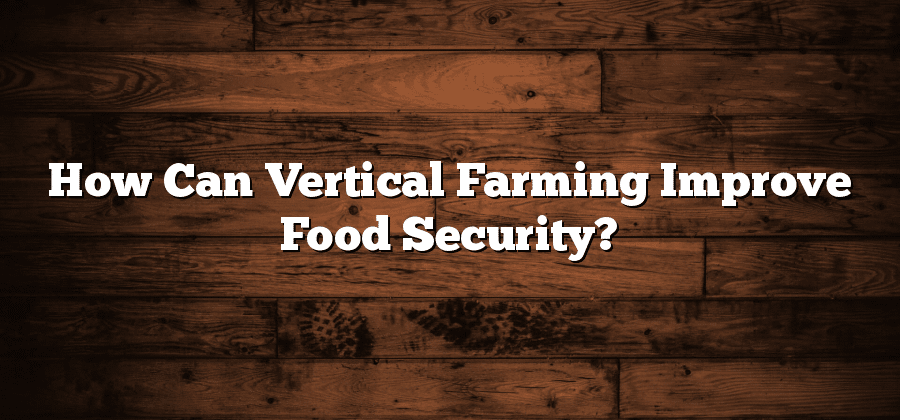Increased Crop Yield and Efficiency
One of the primary goals in modern agriculture is to enhance crop yield and efficiency. By adopting cutting-edge technologies, researchers and farmers alike are working tirelessly to increase the production of food and reduce waste. One of the key approaches to achieving this is through the optimization of planting techniques and the utilization of precision agriculture.
Precision agriculture, also known as site-specific crop management, is a paradigm that takes advantage of advanced technologies and data analysis to enhance the efficiency of farming operations. Through the use of satellite imagery, GPS systems, and sensors, farmers can accurately assess their fields’ characteristics, such as soil fertility, moisture levels, and nutrient deficiencies. This valuable information allows them to adjust the amount and timing of fertilizer applications, planting spacing, and irrigation schedules, ensuring that every plant receives precisely what it needs to thrive. By tailoring these inputs, farmers can maximize crop yield while minimizing unnecessary resource consumption.
Reduction of Water Usage
An essential aspect of sustainable agriculture is the reduction of water usage. With the growing global population placing increasing demands on water resources, agricultural practices must adapt to conserve and optimize water use. By implementing innovative techniques and technologies, farmers can enhance productivity while minimizing water consumption.
One effective approach to reduce water usage in agriculture is the adoption of precision irrigation systems. These advanced systems utilize sensors and data analytics to provide accurate and real-time information on soil moisture levels, allowing farmers to deliver water precisely where and when it is needed. This targeted irrigation approach minimizes water waste and ensures that crops receive optimal hydration, improving their growth and yield. Additionally, the use of drip irrigation and micro-sprinkler systems can further enhance water efficiency by delivering water directly to plant roots, minimizing evaporation and runoff. By implementing these technologies, farmers can significantly reduce their water usage while maintaining or even improving crop productivity.
Elimination of Pesticides and Chemicals
Pesticides and chemicals have long been used in agriculture to protect crops from pests and diseases. However, their widespread use has raised concerns about the negative impact on human health and the environment. As a result, there has been a growing interest in finding sustainable alternatives that can eliminate the need for these harmful substances.
One approach being explored is the use of natural predators and beneficial insects to control pests. By introducing predatory insects such as ladybugs or lacewings, farmers can effectively manage pest populations without resorting to chemical pesticides. Additionally, the use of trap crops or pheromone traps can attract pests away from valuable crops, reducing the need for chemical interventions. These innovative methods not only minimize the risks associated with pesticide use but also promote a more balanced ecosystem within agricultural systems.
Year-Round Harvesting and Crop Diversity
One of the major advantages of modern agricultural practices is the ability to achieve year-round harvesting and crop diversity. With traditional farming methods, farmers often had to rely on specific growing seasons, limiting their ability to produce crops throughout the year. However, advancements in technology and greenhouse cultivation have made it possible for farmers to extend their growing seasons and cultivate a wider range of crops.
Year-round harvesting allows farmers to meet the increasing demand for fresh produce throughout the year. This not only ensures a steady supply of food, but also reduces the need for importing fruits and vegetables from distant regions. Additionally, the ability to grow a diverse range of crops provides consumers with a wider selection of nutritious food options. By growing a variety of crops, farmers can also safeguard against disease or environmental concerns that may impact a single type of crop. This promotes agricultural resilience and helps to secure the food supply chain.
Utilization of Urban Spaces
The concept of utilizing urban spaces for agriculture has gained significant attention in recent years. As cities continue to expand and population densities increase, there is growing recognition of the need for innovative solutions to address food security and sustainability. Urban agriculture presents an exciting opportunity to transform vacant rooftops, walls, and unused land into productive growing spaces.
One of the key advantages of utilizing urban spaces is the ability to bring food production closer to consumers. With vertical farming techniques and hydroponic systems, crops can be grown in controlled environments, even within city centers. This reduces the distance that food needs to travel from farm to table, resulting in fresher produce and reduced transportation costs. Additionally, urban agriculture has the potential to create a sense of community and reconnect people with the food they eat, as urban dwellers can witness the entire farming process right in their own neighborhoods.






